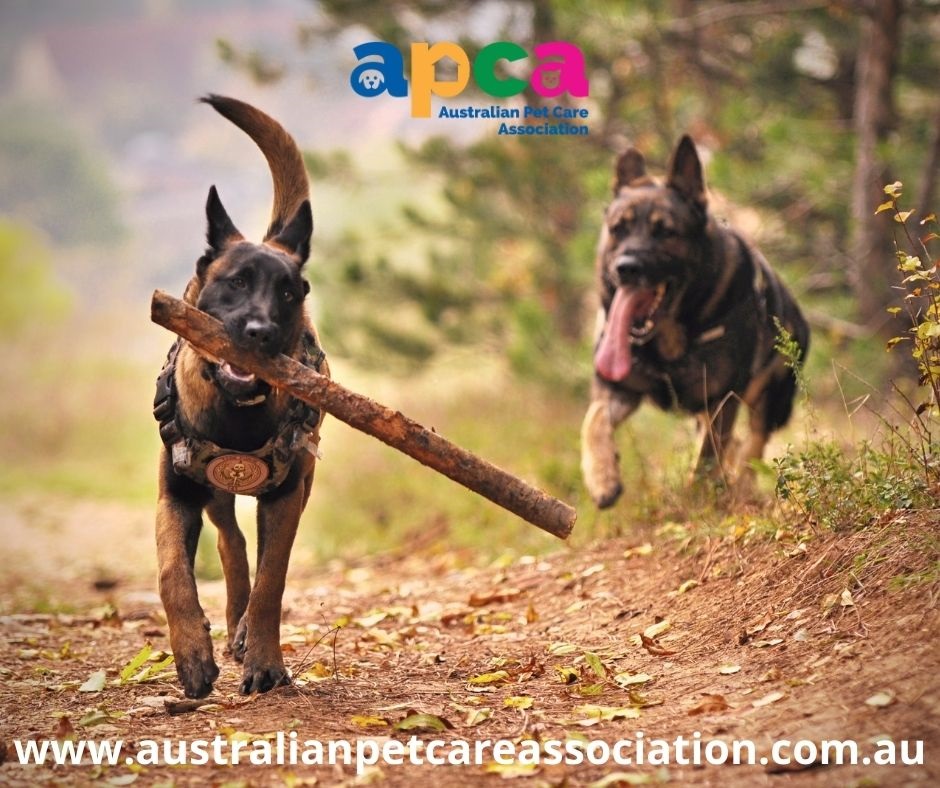There are many different illnesses in dogs that require rapid attention, but Gastric Dilatation and Volvulus (GDV) also known as bloat, is the one condition that requires absolute immediate emergency treatment.
It is imperative that pet owners are aware of the signs and symptoms of this condition and the urgency of the situation if it is suspected.
What is bloat/GDV?
GDV is a term that refers to a rare but extremely serious disease that can occur in dogs. It refers to a sequence of events that starts with the stomach bloating, where gas and/or food stretch the stomach to larger than its normal size causing abdominal pain.
For reasons not fully understood, the grossly distended stomach tends to rotate from its position, and twists as it rotates. This causes a serious problem, which is not only extremely painful, but also rapidly life threatening due to the fact that the twist causes blood supply to be cut off from the stomach. With no blood supply the stomach begins to be compromised and die over a matter of minutes to hours.
What are the signs and symptoms of bloat?
- Sudden abdominal pain and swelling
- Distress and anxiety
- Change in demeanour
- Panting
- Restlessness (pacing)
- Retching without vomiting
- Shock
What are the risk factors?
While is it not known exactly what causes bloat, there are some risk factors to be aware of that may increase the chance of a dog experiencing this emergency condition.
- Large, deep chested breeds
- Increasing age
- Family history of bloat
- Rapid eating
How is it treated?
A dog with symptoms of bloat needs immediate veterinary treatment. A dog with a bloated, twisted stomach will die in a matter of hours unless drastic steps are taken immediately. Once at the vet, the priority will be to decompress the stomach and reverse the shock, and surgery is often required to move the stomach back into its normal position.
Can the pet resort prevent my dog from suffering from bloat?
Unfortunately, there is nothing that your pet resort can do to eliminate the risk of bloat occurring. The reality is that it is still not fully known why this condition occurs.
While some risk factors have been identified over time, bloat can happen anytime without warning, and without those risk factors being present, and in most cases there is no explanation as to why it has occurred.
All that a good boarding facility can do is be on the lookout for any possible physical symptoms of bloat, and act quickly if it is seen by seeking immediate veterinary treatment. The pet owner is financially responsible for such care. A pet resort cannot prevent your dog from bloating, as the main risk factors are the breed of the dog and eating habits, which are two things outside of the pet resort’s control.
What can be done to prevent it?
If your dog is a high risk breed, or suffers from and/or recovers from bloat, a procedure called a gastropexy can be performed where the stomach is surgically attached to the body wall to try to prevent the stomach from twisting in future. If your dog is a very rapid eater, you can buy scoffer bowls, which are primarily designed to slow the eating process down.
The most important thing is rapid intervention if you notice any of the signs of bloat occurring in your dog. If it occurs at night, you will need to go to the vet immediately.
Summary of points:
- Bloat has a high mortality rate and requires immediate veterinary treatment.
- Other than breed predisposition, it is not known what causes bloat (or GVD) to occur.
- When this condition occurs, the bloated stomach rotates and therefore twists off its own blood supply, leading to shock.
- If you see signs of bloat, do not delay. Take your dog to the nearest vet hospital for treatment.
For more information, contact the Australian Pet Care Association anytime by emailing info@australianpetcareassociation.com.au.
Further Factsheets can be found by visiting https://www.australianpetcareassociation.com.au/factsheets/

